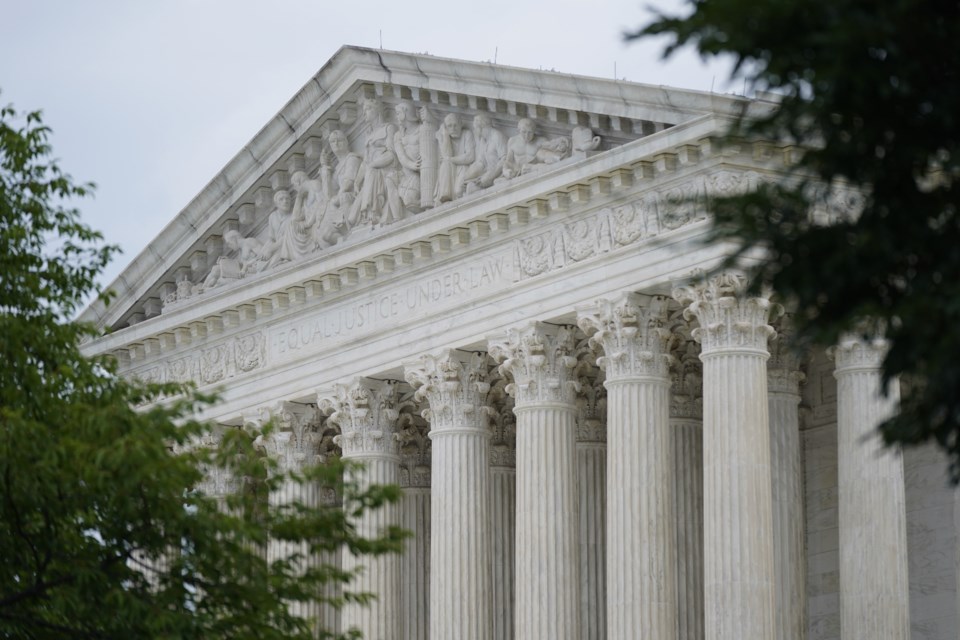WASHINGTON (AP) — Video of a landmark 2010 trial that cleared the way for gay marriage in California can be made public, the culmination of a years-long legal fight. The Supreme Court announced Tuesday that it would not intervene in the dispute over the recordings, leaving in place lower court rulings permitting the video’s release.
The trial more than a decade ago led to the resumption in 2013 of gay marriage in the nation’s most populous state. That was two years before the Supreme Court ruled that
As is typical the justices said nothing about the case in declining to hear it, and it was among many the court declined.
The case the justices rejected began in 2008 when a California Supreme Court ruling legalized same-sex marriage. Voters, however, responded by passing Proposition 8 forbidding it. Two gay couples then sued and proponents of Proposition 8 defended it when the state said it wouldn't.
Because of the interest in the case, the judge overseeing it, Vaughn Walker, initially ordered that it be livestreamed to other courthouses. Proponents of the measure objected, and the Supreme Court stopped the proposed broadcast from happening. Walker did, however, record the trial under rules allowing the practice, but he said it was for his own use and not for the purpose of being broadcast or televised. The video became part of the record of the case but remained under seal.
In the case itself, Walker eventually sided with the gay couples, ruling that Proposition 8 was unconstitutional and barring the state from enforcing it. The case went to the Supreme Court and in a 2013 technical ruling the justices cleared the way for the resumption of same-sex marriage in the state. Two years later the justices ruled 5-4 that same-sex marriage was a nationwide right.
Walker, for his part, has been retired since 2011. After the trial was over, however, the judge used video clips of it during public appearances. A court stopped that practice but there continued to be efforts to unseal the recording. An appeals court determined that the seal on the video would expire in 2020 under local rules.
Some proponents of Proposition 8 argued that the video should remain sealed. But a judge concluded that there was no evidence that anyone involved in the case “fears retaliation or harassment if the recordings are released." The judge also said no one believed at the time of the trial that Walker's “commitment to personal use of the recordings meant that the trial recordings would remain under seal forever.” A federal appeals court also ruled against the Proposition 8 proponents, leading them to appeal to the Supreme Court.
The case is Dennis Hollingsworth v. Kristin M. Perry, 21-1304.
The Associated Press



